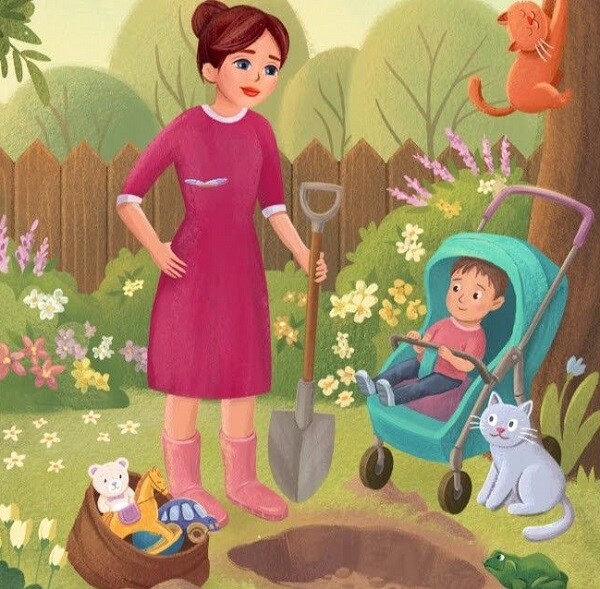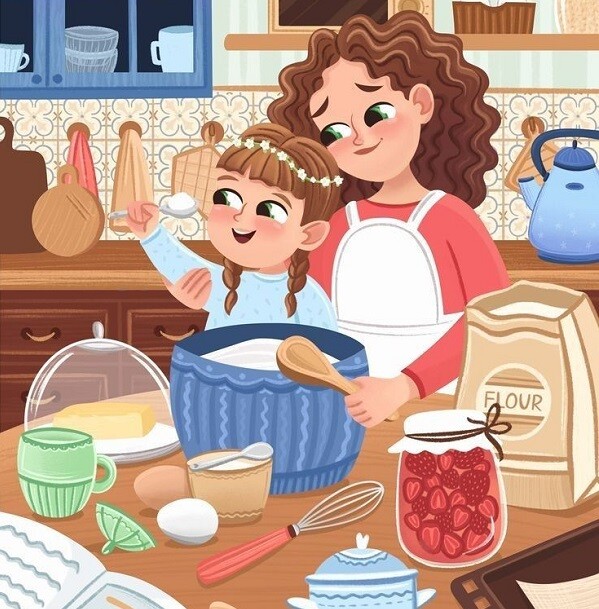Experts have decoded a set of “metaphysical codes” in mothers, which are the calm, diligent, and frugal personalities. These three seemingly ordinary virtues create a miraculous effect that changes the fate of the whole family.


Calm and thoughtful personality
A mother with a calm and thoughtful personality knows how to guide her children through their mistakes. Children do not focus on what happens to their mother but on her attitude when solving problems. This attitude influences how children understand and handle their emotions, shaping their reaction to difficult situations in the future.
When a mother maintains her calm in stressful situations, children learn that facing difficulties is not an impossible task. They realize that staying calm can lead to more effective problem-solving, and emotional resilience during challenging times becomes a valuable skill.

Moreover, the way a mother reacts to failures or challenges teaches children about patience and accepting setbacks as a part of life. If a mother expresses excessive disappointment or worry, children may learn to avoid difficulties or feel afraid when facing challenges. Conversely, a calm mother helps children understand that every problem can be solved, and failure is an opportunity to learn and grow.

Diligent in learning
A mother who is diligent in learning and self-improvement sets a good example for her children. Education is not just about spending money on classes but also about creating a positive learning environment at home.
Instead of rushing your child to read, establish a family learning routine, and make learning as natural as breathing. This environment will encourage children to explore and discover new things actively, making learning an integral part of their daily lives.
Incorporate knowledge and books into your daily routines, such as placing a few books on the sofa for your child to read anytime, having historical conversations while waiting for the bus, or discussing food chemistry during meals. These conversations will broaden your child’s knowledge and create memorable moments between mother and child.

A positive learning environment will encourage children to explore and actively seek knowledge.
Occasionally, show your child the value of learning by exclaiming while reading a good book: “Wow, this paragraph is amazing!” This will spark their curiosity and desire to explore. Try creating a “family learning plan” where everyone learns together through books, interesting materials, or activities.
For instance, organize themed family nights where you share knowledge about a particular topic or field of interest. Additionally, encouraging children to participate in extracurricular activities, such as book clubs, science teams, or cultural events, will broaden their horizons and develop their social skills.

Frugal personality
Today’s parents often struggle with the choice of “raising children in wealth or poverty.” However, the practical answer should be to practice frugality wisely.
Experiencing poverty: Letting children experience “wanting but not getting” will help them appreciate what they have and develop gratitude. When children face things they cannot immediately attain, they learn patience and to cherish what they have, thus developing resilience in the face of life’s challenges.
Enriching the mind: Instead of buying toys, invest in books to open up a world of knowledge for your children. Reading helps children develop language and thinking skills and stimulates their imagination. Replace short video-watching time with historical stories to give them a glimpse into the real world, significant events, and influential people who shaped civilization.
Opt for annual museum passes instead of shopping sprees to provide children with hands-on experiences, art, and cultural exploration, fostering their sensitivity and multidimensional understanding of the world around them.

Children learn patience and to cherish what they have when they face things they cannot immediately attain.
Long-term investment: If possible, take your children on trips to different places, providing them with relaxation and valuable lessons. These journeys will broaden their horizons and expose them to diverse cultures, teaching them that wealth lies not only in material possessions but also in the rich experiences life has to offer.
A mother’s frugality helps children distinguish between “needs” and “wants,” preventing them from being consumed by material desires. When a mother takes the initiative in financial management, children learn the value of saving and planning for the future.
So, instead of constantly worrying about your child “starting from behind,” become their source of positive energy and knowledge. Be the wind beneath their wings, nurturing their spiritual and intellectual growth. In this environment, children learn that true wealth lies in love, sharing, and exploring the world, not just material possessions.
Nurturing a Child’s Potential: The Two “Don’ts” for Parents
“Failing to educate your children is a parental failing” is a well-known saying that emphasizes the importance of parental involvement in their child’s education. This quote highlights the belief that parents have a responsibility to ensure their children receive an education and are not left ignorant. It is a powerful reminder that education is a fundamental right and a crucial aspect of a child’s development.






































